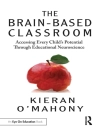Until recently the subject of suffering and evil was neglected in the sociological world and was almost absent in Durkheimian studies as well. This book aims to fill the gap, with particular reference to the Durkheimian tradition, by exploring the different meanings that the concepts of evil and suffering have in Durkheim’s works, together with the general role they play in his sociology. It also examines the meanings and roles of these concepts in relation to suffering and evil in the work of other authors within the group of the Année sociologique up until the beginning of World War II. Finally, the Durkheimian legacy in its wider aspects is assessed, with particular reference to the importance of the Durkheimian categories in understanding and conceptualizing contemporary forms of evil and suffering.
Tabla de materias
Acknowledgements
Prolegomena
Introduction: Suffering, Evil and Durkheimian Sociology: Filling a Gap
W.S.F. Pickering and Massimo Rosati
Reflections on the Death of Emile Durkheim
W.S.F. Pickering
PART I: SUFFERING AND EVIL IN DURKHEIM
Chapter 1. Le Suicide and Psychological Suffering
Sophie Jankélévitch
Chapter 2. Suffering and Evil in the Elementary Forms
Massimo Rosati
Chapter 3. Some Concepts of ‘Evil’ in Durkheim’s Thought
Giovanni Paoletti
Chapter 4. Suffering to Become Human: A Durkheimian Perspective
Mark S. Cladis
PART II: THE DURKHEIMIAN LEGACY
Chapter 5. Robert Hertz on Suffering and Evil: The Negative Processes of Social Life and Their Resolution
Robert Parkin
Chapter 6. Le Malin Génie: Durkheim, Bataille and the Prospect of a Sociology of Evil
William Ramp
Chapter 7. Evil and Collective Responsibility: The Durkheimian Legacy and Contemporary Debates
Massimo Rosati
Chapter 8. The Hague Tribunal: Critical Reflections Prompted by Durkheim’s Remarks on Suffering
John B. Allcock
Chapter 9. Looking Backwards and to the Future
W.S.F. Pickering
Notes on Contributors
References
Index
Sobre el autor
Massimo Rosati (1969-2014) was Associate Professor at University of Rome Tor Vergata, where he taught Sociology. He published articles on Durkheim and contemporary social theory. He was the editor of the new Italian edition of Durkheim’s The Elementary Forms of Religious Life and he was author of Ritual and the Sacred: A Neo-Durkheimian Analysis of Politics, Religion and the Self (2009).












